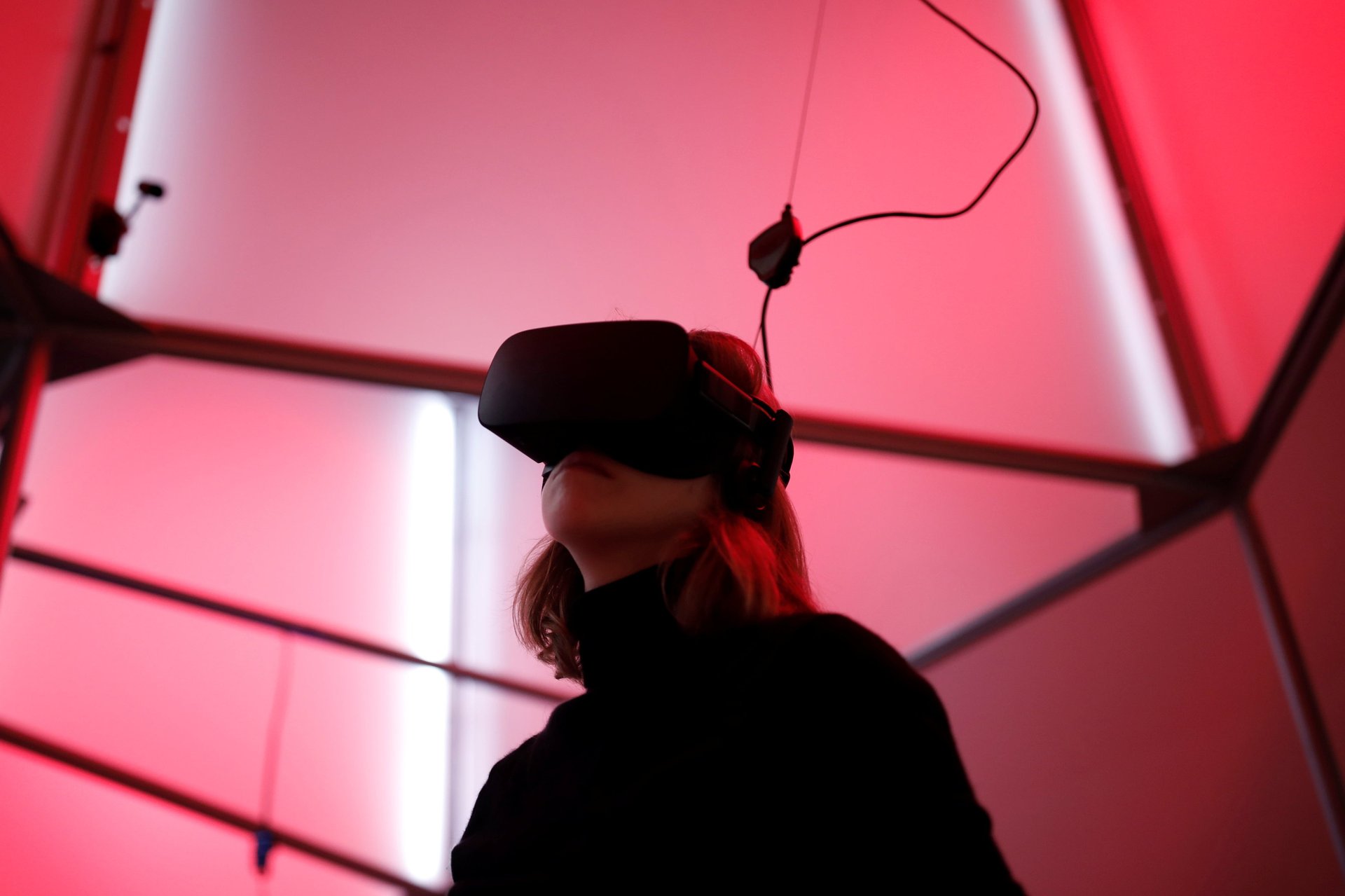Soon you might not need an expensive computer to lose yourself in immersive VR worlds
“You are now free to move about the cabin—and the infinite expanse of virtual reality.”


“You are now free to move about the cabin—and the infinite expanse of virtual reality.”
Facebook’s Oculus subsidiary is working on a standalone virtual-reality headset that will cost around $200, that it plans to reveal later in the year, Bloomberg reported today. The device will sit between the two types of VR rigs that are currently on the market—the low-cost headsets such as those made by Samsung and Google that require a smartphone to act as the screen and the processor, and the more immersive devices such as Oculus’s Rift and HTC’s Vive that cost over $400 and require a powerful computer to run. It will be, as Bloomberg reports, a device that one could pull out in spare moments to play a game or watch a VR video, such as when you’re on a plane, as you might do with a tablet or smartphone today.
Facebook wasn’t immediately available to comment on its VR plans, but told Bloomberg that it was “making several significant technology investments in the standalone VR category.” The company unveiled its first VR rig two years ago, and started shipping it to customers in March 2016. Oculus started out as a Kickstarter project of founder Palmer Luckey in 2010, and the company was bought by Facebook for about $2 billion in 2014. (Luckey departed the company in March, potentially as a result of funding an anti-Clinton meme group during the 2016 US election.)
Whether Facebook’s new machine will be able to produce an experience quite as immersive as what the Oculus Rift can achieve without relying on a powerful computer remains to be seen. Most of the experiences that standalone headsets provide are sub-par, as the smartphones that power them can’t really produce detailed graphics—or at least, not for very long before the phone’s battery dies. Given Bloomberg is reporting Facebook’s device will be closer in price to a low-end machine, it’s not clear whether it would have the power to be something more than a triviality. But according to Bloomberg, Facebook is trying to create a device that will make VR as popular as the iPhone made smartphones.
Others, including Google and PC manufacturers, are also working on standalone headsets. Perhaps while taxiing on flights in the near future, stewards will ask us to please stow away any computers and VR headsets until the plane has reached cruising altitude.